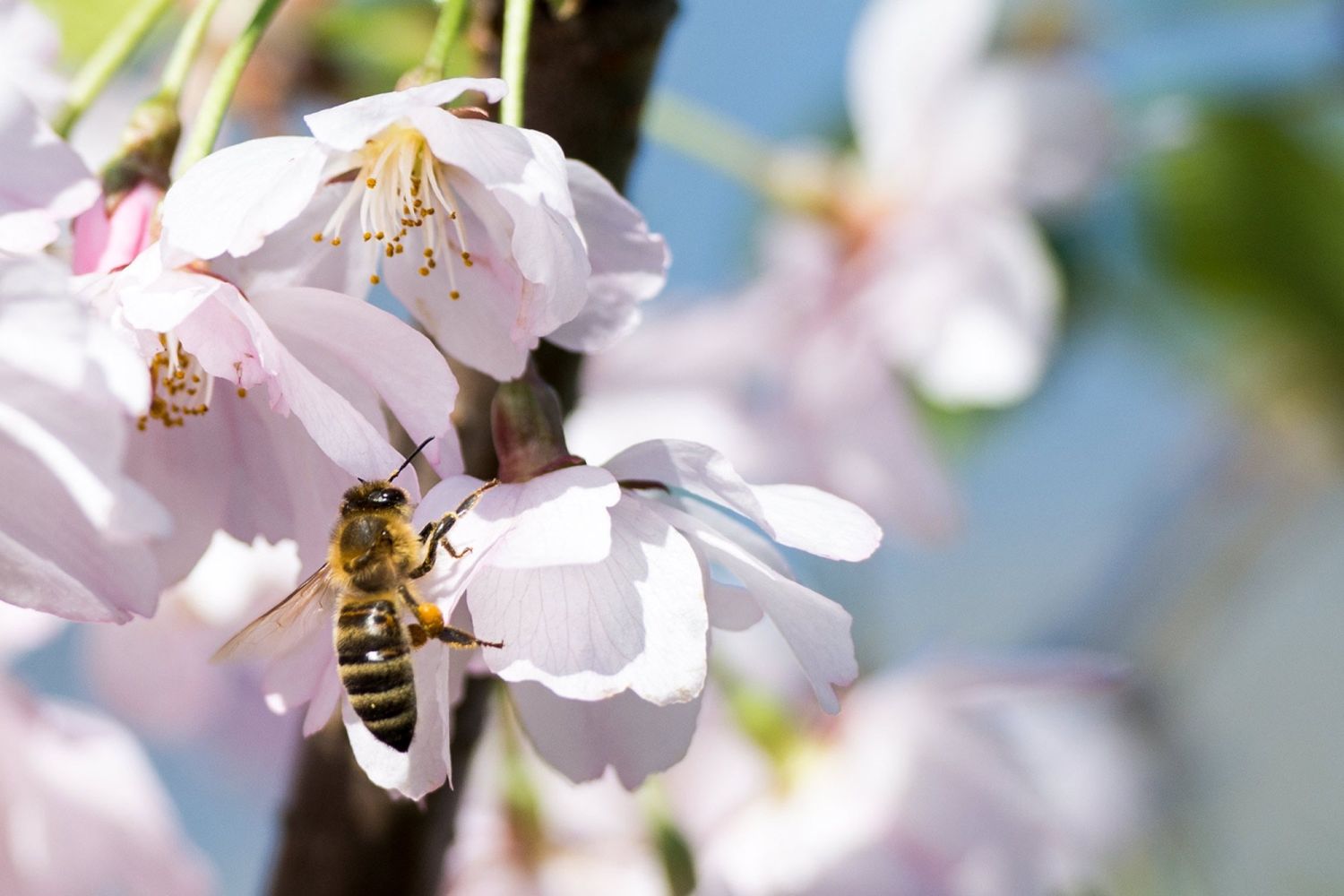A brief introduction for the occasion:
May 20 is World Bee Day! On the occasion of this day, it is close to our hearts to care about bees. We are not, however, like most current campaigns, concerned with asking people to promote as many bee-friendly plants as possible. The efforts of recent years have been huge and many bee colonies and friends are enjoying this attention. So do we.
The bee as a farm animal
For us, today is about a different aspect: the bee as a farm animal. Many beekeepers today see their bees more as farm animals and producers of honey with which money can be earned. Thus, even in this industrial sector, a lot of chemicals are now used to keep pests away and the bee colony healthy.
Our concern is to consider the bees as animals living in nature, which from their origin of the revolution were once able to keep their colonies healthy naturally, without the intervention of man. For it was precisely the latter who made the hives for the honey bee, created standard dimensions and thus did not fully take into account natural processes and work steps of the bee. Today, the honey bee itself has become a pure breeding animal and is kept and treated as such. This has its advantages and provides us with a rich and regular honey harvest, but also carries the price of interference with nature.
As a primordial-natural organic pioneer, we also have a responsibility towards the bees: thus, our assortment offers a product for the bees as well as for many other animal species and humans.
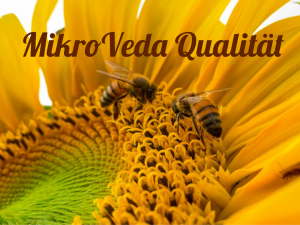
How can we help the bee to stay healthy in a natural way?
For the natural care and strengthening of the hive and its environment, MikroVeda has developed together with organic beekeepers MikroVeda Care Apis for bees. It is based on garden herbs fermented with Mikroveda microorganisms (organic) and serves to bring the microbiotic balance in the bee colony, which is burdened by environmental conditions, back into a healthy balance.
What factors contribute to the threat to bee health?
- Excessive monoculture cultivation in agriculture
- Early mowing of meadows,
- Use of highly toxic pesticides and mordants such as nicotinoids (neurotoxins),
- Constantly increasing pollution of the environment
- Use of chemicals in the care of bees
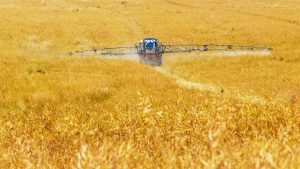
How do these factors affect bee health?
All this weakens the immune system of bees, so that they lose their ability to maintain the health of the entire colony.
Bees have several interrelated tasks: on the one hand, they pollinate plants and ensure fruit formation, and on the other hand, they produce coveted products such as honey, pollen, propolis, royal jelly, bee bread and wax. And these valuable products are actually intended for the bees’ own colony: a recipe for maintaining a healthy hive. Bees maintain a constant temperature with their movements in the hive and protect their queen. A perfectly coordinated system.
What is the current problem in the system?
The hive has a temperature of 35°C and high humidity. Conditions under which bacteria can easily multiply and diseases can spread. If the bees are weakened by “pesticides" or introduced bacteria or fungi, enemies such as the notorious Varroa mite or Nosema microsporidia have an easy time. It is often not easy for beekeepers to find out why one day only the queen and a handful of bees are left in a hive. Bees have the characteristic that they fly out when sick and do not return to the hive to avoid infecting the other bees. In addition, the orientation is often disturbed by sprays, because these act as a nerve poison, and the bee can no longer find its way back to the hive. The bee death phenomenon is called colony collapse disorder (CCD).
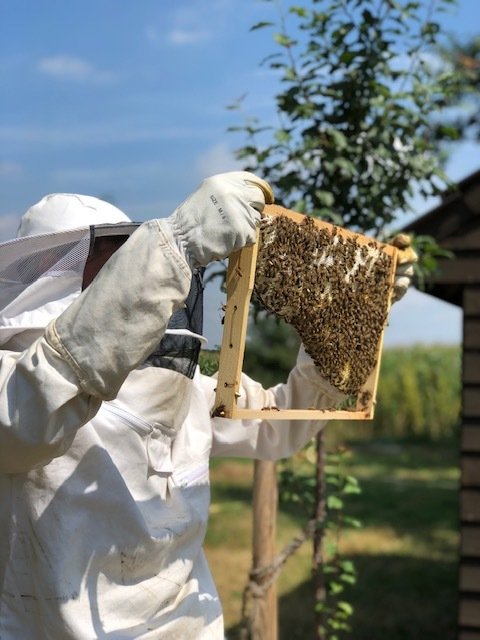
How can good bacteria help keep the bee colony stable?
Only when bee populations are doing well do the natural processes inside and outside the hive function.
In order for the bees to better cope with stressful environmental conditions such as monocultures and pesticides on the one hand, and aggressive enemies such as the Varroa mite on the other, it is important to strengthen the immune system of the bees and the microbiome balance of the hives in a natural way and without further chemical stress.
During the fermentation of the certified organic herbs specially selected for MikroVeda Care Apis with naturally occurring lactic acid cultures, a pH of 3.5-3.9 is created. This low pH inhibits the development of pathogenic, potentially disease-causing germs. This stabilizes the natural microbiome balance in the bee colony.
The simple and natural application of MikroVeda Care Apis:
The preparation is sprayed on the approach board and flight hole wedge diluted with good water and can also be used while working on the hive: Instead of using smoke, very finely spray MikroVeda CARE Apis for bees (50% MikroVeda CARE Apis + 50% water) while working on the bees. The pH of 3.5 has a cleansing effect in which pathogenic substances or harmful organisms no longer find living conditions.
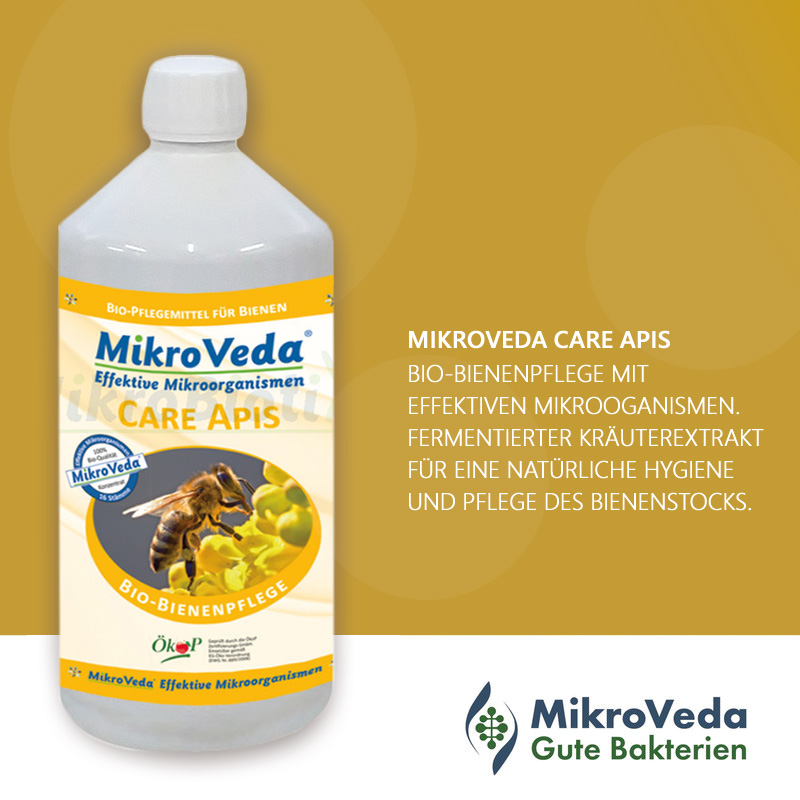
100% ur-natürlich, über Jahrzehnte bewährt, geprüft und zertifiziert gemäß EG-Öko-Verordnung.

